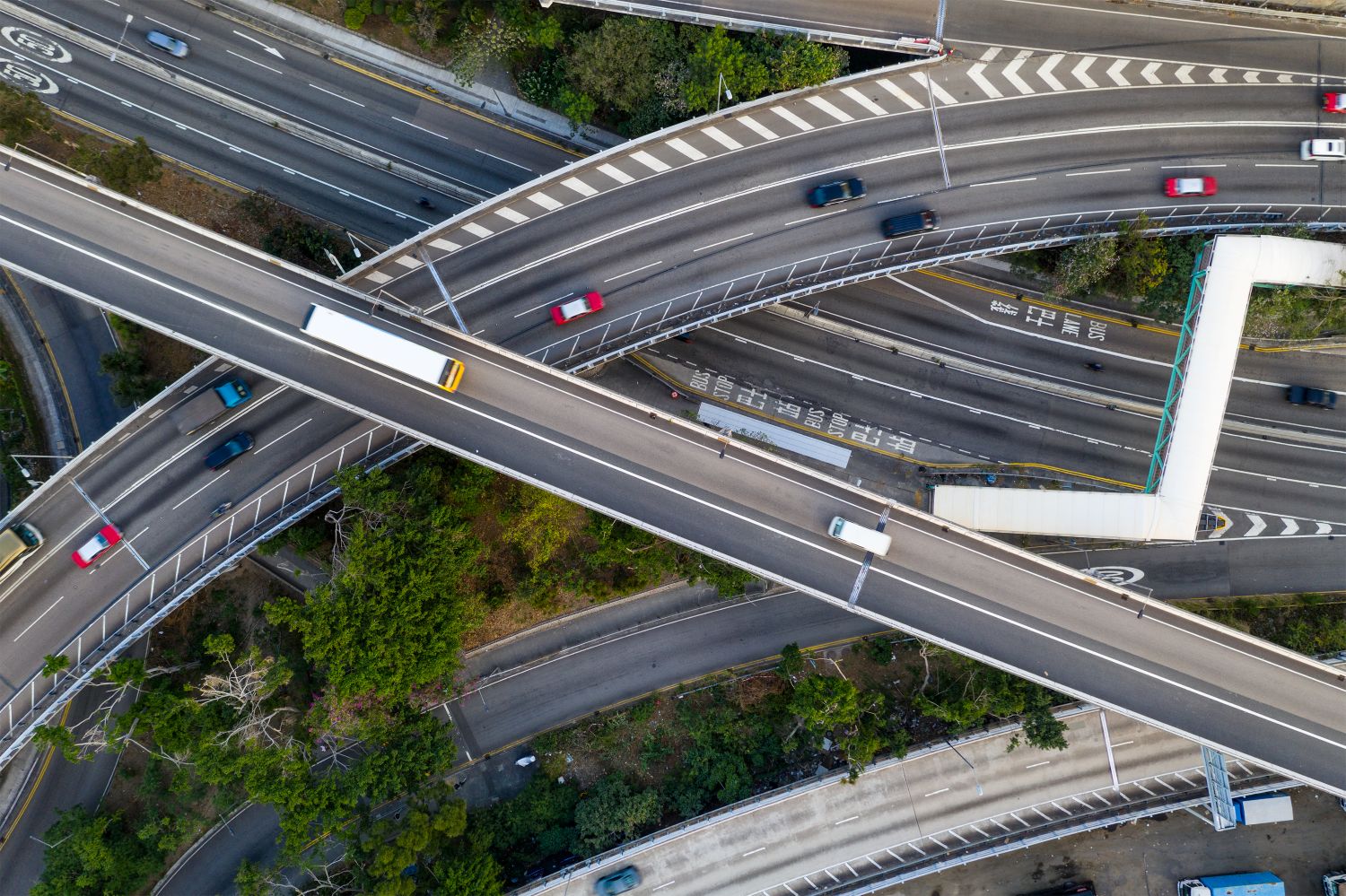
Miranda Blake
Dan voznikov tovornih vozil 2025: Dajanje glasu voznikom tovornjakov
Ustvarjeno: 22. 01. 2025
•
Posodobljeno: 22. 01. 2025
- januarja 2025 je dan voznikov tovornih vozil. Ta dan, ki ga je ustanovila družba NN1 Personnel (zaposlovalci in dobavitelji voznikov tovornjakov v logistični industriji), je namenjen praznovanju voznikov in vsega, kar počnejo za gospodarstvo in družbo.
Brez voznikov tovornjakov, ki se pri svojem delu pogosto soočajo z različnimi težavami (med drugim so oddaljeni od svojih družin in doma, imajo dolge delovne ure in potujejo v ekstremnih vremenskih razmerah), bi ostali brez potrebnih izdelkov in udobja. V zadnjih nekaj letih in tudi prej so bili resnično junaki - pandemija je bila le en primer tega.
Kako boste zaznamovali ta dan, je odvisno od vas. NN1 Osebje priporoča prijazna dejanja, na primer tako, da voznikom ponudite topel napitek ali z njimi poklepetate.
V podjetju SNAP si vedno prizadevamo, da bi tovornjakarji dobili besedo. In prav to počnemo ob dnevu voznikov tovornih vozil. Po nedavni objavi na naši strani na Facebooku, v kateri smo se spraševali o pomanjkanju voznikov in o tem, kako mladim zagotoviti navdušenje za delo v panogi, izpostavljamo nekaj komentarjev voznikov tovornjakov, ki prikazujejo njihove resnične izkušnje - od izzivov, s katerimi se soočajo, do tega, kaj imajo radi pri svojem delu.
Ravnovesje med delom in zasebnim življenjem
Vozniki največ govorijo o tem, kako vloga vpliva na njihovo zasebno življenje, na primer, da ne morejo biti ob pomembnih življenjskih trenutkih, da morajo spati v kabini in da denar ni vreden žrtvovanja, ki ga opravljajo.
"Vožnja tovornjaka je bila vedno slabo plačana, dolge ure in malo ali nič družabnega življenja. Današnji mladi ne bodo prenašali neumnih ur, saj ima večina ljudi življenje zunaj službe. "
"Ne priporočam ga, razen če ga imate v krvi. Ne gre za običajno službo, ampak za način življenja. Razumeti moraš, v kaj se spuščaš. Nimaš rednih časov začetka in konca dela kot v tovarni. Vse je odvisno od narave dela. Od tebe se pričakuje, da boš delal 15-urne izmene in noči v kabini, saj to zahteva delo - in da boš ob tem izgubil domače življenje. "
"70 ur na teden v povprečju za 50 tisoč funtov na leto preprosto ni več vredno. Minimalna plača hitro dohiteva povprečno plačo voznika tovornjaka, zato bom za podoben denar delal nadure v tovarni in bom lahko vsak večer videl ženo. "
"60/65 ur na teden, 3/4 večera, nobenega družabnega življenja - za denar, ki ga zaslužiš, bi lahko tudi zlagali police v Aldiju in imeli življenje. Novi vozniki, ki prihajajo na vozniški poklic, ne želijo toliko ur ali noči za drobiž, ki ga zaslužijo, dejstvo. Ko bodo podjetja začela voznikom plačevati več, bodo začela pridobivati voznike. "
"Koliko tistih, ki so začeli hkrati z mano, je nadaljevalo z delom v tej panogi? Koliko žena se je naveličalo, da ne vidijo svojih mož? Koliko voznikov se je naveličalo, da ne vidijo svojih žena in otrok? "
"Zakaj bi mladi vozniki vstopili v panogo? Dolge ure, slabo plačilo - če se izobrazijo za kaj drugega, lahko zaslužijo več in imajo bolj družabno življenje. Zame je zdaj žal prepozno. "
Statistični podatki potrjujejo povratne informacije. Ugotovljeno je bilo na primer, da vozniki tovornjakov vsak teden v povprečju delajo 48 ur - v primerjavi s 37,5 ure za vse zaposlene je to za 28 % več. In zato ni presenetljivo le tretjina voznikov je menila, da njihovi delodajalci podpirajo ravnovesje med poklicnim in zasebnim življenjem. Prav tako ni presenetljivo, da jih je tako veliko zapustilo sektor, vključno s 67,21 % mlajših od 30 let, ki so v enem letu po pandemiji obesili na klin svoje vozniško opremo.
Življenje po prevozu
Nekateri, ki so komentirali, so se iz industrije preselili v druge vloge, ki jih bolj veselijo.
*"V tovarni, kjer obdelujejo dele, so plačani bolje... in vem, kdaj grem in kdaj grem domov, tako da je to brez težav." *
"Moje vozniško dovoljenje in CPC le ležita v denarnici. Zdaj učim ljudi voziti avtomobile. "
"Niti malo ga ne pogrešam. Licenca še vedno velja. Pustite CPC. Dovolj ga imam. "
"Dolga leta sem delal v prvem razredu in se ne bi vrnil vanj, ker lahko v tovarni zaslužim enako in imam družinsko življenje. Preprosto ni več vredno!"
"Vrnil sem se k vožnji z avtobusi, saj je tam, kjer živim, plačilo na uro višje. Po 15 letih vožnje težkih tovornih vozil naravnost obožujem osemurne izmene. Ne zavedaš se, kaj zamujaš s kakovostnim časom brez dela, dokler tega ne izkusiš znova. "
Po družinskih stopinjah
Drugi pa so razmišljali o lepih spominih na vožnjo s tovornjaki z očetom v otroštvu, o vrednosti te vožnje in o tem, kako jih je ta izkušnja pripeljala do tega, da so se po končanem izobraževanju tudi sami pridružili temu sektorju.
"Mislim, da industrija v veliki meri ne razmišlja o tem, kako so bili 21-letniki vzgojeni. Včasih so se vozili s svojimi očeti v tovornjakih. Fantje v tovornjaku so razvijali prav toliko možganskih spretnosti, vendar so gledali na številke na cesti. "
"Ko so ukinili možnost, da bi se otroci med počitnicami vozili z očetom v vagonu, je to mlade nehalo zanimati. Priznajmo si: ni ravno finančne spodbude za včlanitev, kajne? "
"Niti ene šolske počitnice nisem preživel brez vožnje z očetom v tovornjaku. "
"Preden so zapustili šolo, so to delo poznali do potankosti. "
"Z očetom je bilo super iti v Belgijo. United Carriers za agencijo Protem Ltd iz Kenta. Nato sem začel delati za Marley Extrusions. Potem in še zdaj sem pomočnik voznika, ker nimam vozniškega dovoljenja - želel bi si ga imeti, vendar moj vid ni dober, zato delam naslednjo najboljšo stvar kot pomočnik voznika. Rad sem v svojih tovornjakih. "
strast do dela
Podobno se mnogi niso strinjali, da tovornjakarstvo ni idealen poklic - bodisi zaradi denarja bodisi zaradi ljubezni do vožnje tovornjaka.
"Delam tri noči na teden za osnovno plačilo 45 tisoč funtov na leto. Pokažite mi drugo delo, ki bi ga lahko dobil z dvotedenskim usposabljanjem in bi bilo tako plačano!"
"Že skoraj 49 let delam na tankerjih, pri 74 letih še vedno delam ob koncih tedna in eno noč na teden, in lahko vam zagotovim, da v industriji primanjkuje dobrih ljudi. Veliko dobrih ljudi je umrlo pred svojim časom. Vsekakor bi vse to ponovil, če bi lahko. "
"To je poklic, ki ti je ali všeč ali ne. Jaz sem ga z veseljem opravljal več let in sem bil odsoten 4-6 tednov naenkrat. Veliko je odvisno od tega, kateremu podjetju se pridružite. Jaz sem bil pri svojem 32 let. "
"Pri 19 letih sem opravil vozniški izpit. Že skoraj tri leta sem na potepih - obožujem ga. "
"50 % voznikov ni želelo biti odsotnih in nihče ni želel biti odsoten ob koncih tedna. Bolj ali manj so mi vsi rekli: "Zamudil si najboljša leta, sin, poišči si drugo službo". Resnica je bila, da denar ni bil slab, če si delal ure, in če si bil tam zaradi denarja, si lahko dobro živel. Če si želel lagodno življenje v najboljših tovornjakih, veliko počitka in skrb za podjetje, si bil na napačnem delovnem mestu. "
"Vedno sem vsak teden opravil več kot 60 ur in imel pri tem dobro in udobno življenje, predvsem pa ob sebi zelo dobro, razumevajočo in močno žensko. In ja, vse to bi ponovil. "
Priznanje voznikom tovornjakov ob dnevu voznikov tovornih vozil
Vsi ti komentarji jasno kažejo, da se vozniki tovornjakov zagotovo soočajo z izzivi, vendar imajo še vedno veliko dela, ki jim je všeč, za nekatere pa je to poklic, ki ga z veseljem opravljajo vse življenje - zato je smiselno, da je približno polovica voznikov zadovoljna s svojim delom.
Menimo, da je ključnega pomena, da se vsi zavedamo, kaj vse tovornjakarji naredijo za nas. Na žalost so nekateri vozniki poudarili, da se soočajo s precejšnjim pomanjkanjem spoštovanja. To se ne bi smelo zgoditi - treba jim je priznati, da nam zagotavljajo vse najnujnejše življenjske potrebščine. Kot je dejal eden od voznikov tovornjakov:
"Avtoceste so morda žile države, vendar so tovornjaki naša kri. Brez njih ne bi imeli niti hrane, kaj šele blaga. "
Zato na dan voznikov tovornih vozil - in pravzaprav vsak drugi dan - prosimo vse, da se zavedajo tistih, ki so za nas na cesti. Vozniki tovornjakov si zaslužijo pohvalo, spoštovanje in še veliko več.



